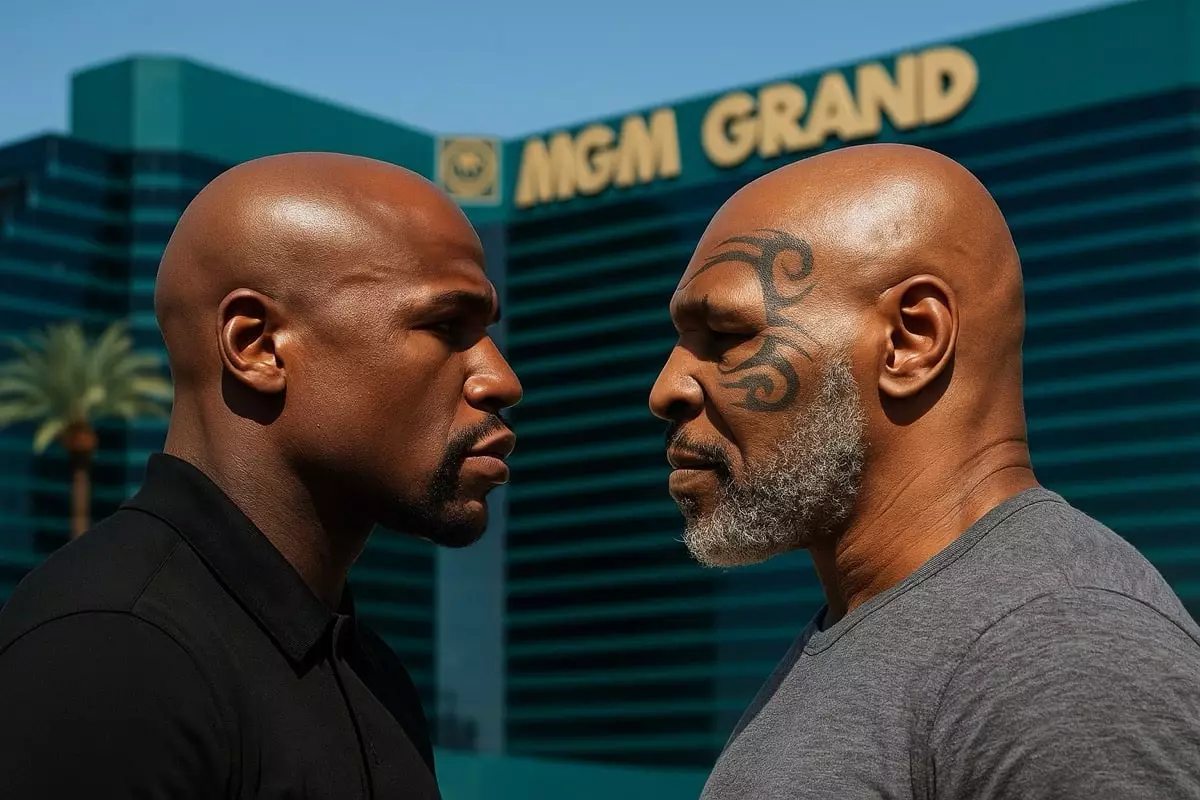Few athletic pursuits are as fiercely intimate and emotionally charged as boxing. For champions like Mike Tyson, the ring is more than a battlefield—it’s a defining part of their identity. The enduring question remains: why do these legends, well past their physical prime, keep stepping into the squared circle? At 59 years old, Tyson defies expectations by announcing yet another comeback, sparking a mix of admiration and bewilderment. This relentless pursuit of fighting, despite glaring physical limitations, reveals an intrinsic human need to seek purpose, recognition, and a sense of mastery that only the sport can provide.
This obsession isn’t solely driven by fame; it’s rooted in an emotional and psychological tether that many fighters find impossible to sever. Aging champions often find their self-worth intertwined with their athletic accomplishments. Tyson’s candid explanations underscore this: he admits that fighting is “all I know how to do.” To him, stepping away from the sport isn’t just about physical capability—it’s about reaffirming his identity and, perhaps, avoiding the existential void that might follow retirement.
Moreover, age becomes a paradoxical factor. The longer fighters remain active, the more they cling to the adrenaline-fueled life they once led. These fighters, including Tyson, often articulate a notion that their fighting days aren’t just about livelihood—they’re about the essence of who they are. Despite the increasingly obvious risks to physical health and legacy, the pull of the ring offers a sense of continuity that normal life cannot replicate.
The Financial and Emotional Imperative
Money undoubtedly plays a significant role, yet Tyson’s reflections suggest that his motivations extend beyond mere financial gain. Interestingly, Tyson mentions that he made more money in his 50s than he did in his 20s, despite fighting less frequently. This honesty uncovers a complex truth: for many aging fighters, the sport remains a lucrative endeavor, but also a source of emotional fulfillment.
Yet, it’s not just about bank accounts. Tyson points out the importance of being able to support loved ones, notably his young son. These pragmatic reasons coexist with deeply personal ones—pride, legacy, identity. For many fighters, stepping into the ring becomes a way of asserting their relevance, of proving that they still possess the fire—the ‘it’ factor—that once made them the best in the world.
The recent Tyson-Mayweather bout exemplifies this confluence of motives. While labeled an exhibition, there’s an underlying intensity fueled by personal grudges and longstanding rivalries. Tyson’s known disdain for Mayweather hints that this event isn’t merely about spectacle; it’s about asserting dominance, settling scores, and perhaps, rediscovering a piece of himself through confrontation. Even in exhibition fights, the emotional stakes are disproportionately high for fighters who view their legacy—and their ego—as inseparable from their ability to fight.
The Cultural and Psychological Legacy of the Fighter
The enduring fascination for fans and media alike is that Tyson, despite age and recent setbacks, remains an iconic figure. His continued presence in the spotlight underscores the cultural obsession with legendary fighters—those who define eras and who, like Tyson, embody the raw, unfiltered power of boxing.
This phenomenon highlights a broader societal tendency to romanticize resilience and combativeness. We celebrate fighters who refuse to accept the natural decline that comes with age because it challenges our notions of strength, determination, and defiance. Tyson’s resilience, whether motivated by ego or genuine love of the sport, resonates with a universal human desire—to confront challenges head-on and to find meaning in adversity.
Moreover, the psychological reality for fighters is complex. Retirement often feels like an abandonment of identity. The ring has been a crucible that forged them into who they are; leaving it behind can evoke feelings of loss or irrelevance. Tyson’s ongoing combativeness can be viewed as an attempt to stave off those feelings, to remind himself—and the world—that he remains a formidable force.
Ultimately, fighters like Tyson highlight a fundamental truth: for some, fighting is more than a career; it’s a lifelong affirmation of purpose amid aging and changing circumstances. Whether by financial necessity, emotional pull, or an unyielding thirst for validation, their return to the ring underscores the profound human struggle to find meaning—and maintain it—against the relentless march of time.

